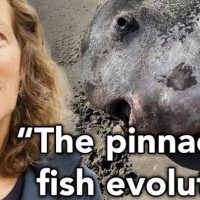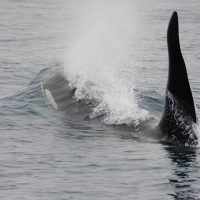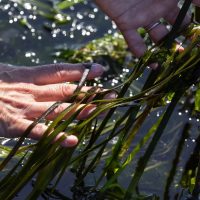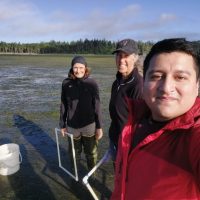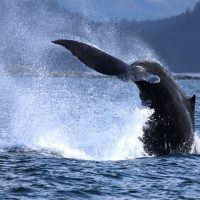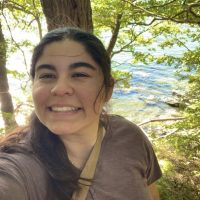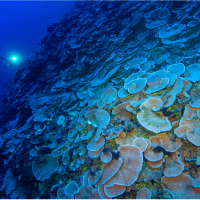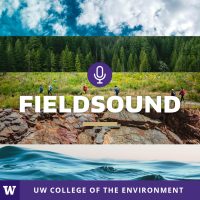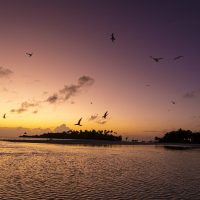Filter Results
Giant fish keep washing up in Oregon
In a new video created by the Burke Museum, Fish Collections Manager Katherine Maslenikov takes us behind the scenes of the Burke Museum to answer questions about the giant bizarre Sunfish washing up on the shores of Oregon
Read moreWhat’s for dinner? Scientists unearth key clues to cuisine of resident killer whales
A team led by researchers at the University of Washington and the National Oceanic and Atmospheric Administration has uncovered key information about what resident killer whale populations are eating. Researchers had long known that resident killer whales prefer to hunt fish, particularly salmon. But some populations thrive, while others have struggled.
Read moreUW researchers discover eelgrass superpower in Puget Sound
Eelgrass meadows are among the most productive and ecologically important places in Puget Sound. Already highly valued as nurseries for sea life, researchers including SAFS Affiliate Faculty, Drew Harvell, have discovered a new eelgrass superpower, as living urban systems that reduce human pathogens in seafood by as much as 65%.
Read moreHow do our sea-meadows grow?
The WSG-funded research informs the future of eelgrass restoration in Washington, and the study is headed by UW Professors Kerry Naish (SAFS) and Jennifer Ruesink (Biology), as well as SAFS doctoral student Bryan Briones Ortiz. Their research first looked at the baseline genetic structure of the eelgrass population in Washington.
Read moreRapid increase rates in large whale populations continue until they near carrying capacity
In a new study challenging conventional thinking about how populations of large baleen whales recover from whaling, researchers have revealed that populations continue increasing rapidly for a wide range of recovery levels, only slowing once approaching pre-whaling levels.
Read moreNewly graduated SAFS master’s student chosen as 2024 WSG Keystone Fellow
Recent graduate of the SAFS master’s program, Jezella Peraza, has been chosen as the 2024 Washington Sea Grant (WSG) Keystone Fellow. As the 2024 WSG Keystone Fellow, Jezella will work with the Seattle Aquarium on an integrated conservation effort for pinto abalone. In collaboration with Indigenous Peoples and local communities, Jezella will help shape and implement engagement strategies to support pinto abalone recovery and honor cultural connections.
Read moreA 3D view of ocean conservation and fishing activities
In recent years, there has been a global push to expand marine conservation efforts, but the quality of the implemented conservation network has often been neglected in favor of quantity. In a new paper published in Nature Communications, Juliette Jacquemont tackles one of the limitations of marine spatial planning by conducting the first global assessment of the 3D distribution of fishing activities and conservation coverage.
Read moreGEODUC team featured on UW Environment Fieldsound podcast
In a new episode of UW Environment’s Fieldsound podcast, they’re joined by those behind the GEODUC program, which boosts belonging in geosciences for transfer students.
Read moreA haven for research in the South Pacific: Tetiaroa
From microplastics to seabirds, and everything in between, Tetiaroa offers new insights on tropical ecosystems for UW Professors and researchers.
Read moreGrist visits the Wood Lab: Nature can’t run without parasites, so what happens when they start to disappear?
As part of a video series profiling the science and scientists behind some of the environment’s most unexpected research, Grist visited the Wood Lab at SAFS, to find out about Chelsea Wood’s parasite research.
Read more